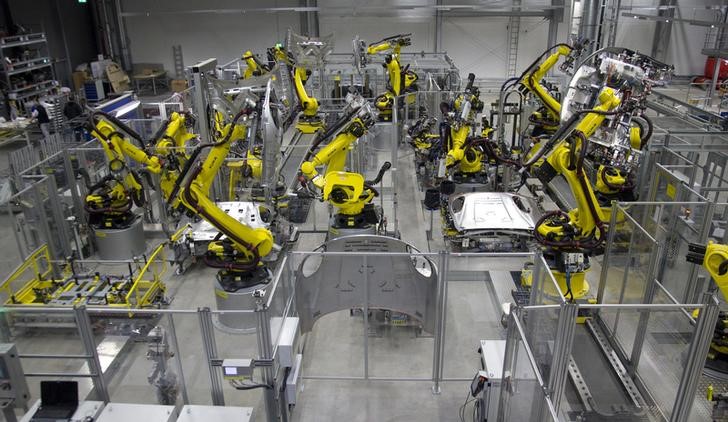By Jonathan Cable
LONDON (Reuters) - Euro zone manufacturing ended 2014 on a subdued note as output, new orders and employment all recorded sluggish growth, a survey showed on Friday, adding to pressure on the European Central Bank to boost the economy.
Also of concern to policymakers, who are struggling to nurture growth and ward off deflation, the survey showed factories cut prices for the fourth month running and activity was weak in Germany, Europe's largest economy.
The downturn also deepened in France, the bloc's second-biggest economy.
"Euro zone factory activity more or less stagnated again in December, rounding off a year which saw an initial, promising-looking upturn fade away and stall in the second half of the year," said Chris Williamson, chief economist at survey compiler Markit.
Markit's final December manufacturing Purchasing Managers' Index stood at 50.6, down from an earlier flash reading of 50.8 but beating November's 17-month low of 50.1.
That is above the 50 mark that separates growth from contraction, but there was little sign of any improvement this month, with the subindex for new orders at just 50.2, leading factories to barely increase headcount in December.
An output index, which feeds into a composite PMI due next Tuesday that is seen as a good indicator of growth, fell to 50.9 from the flash reading of 51.2, which matched November's final figure. December's final figure was the lowest since June 2013.
Williamson said the weakness, coupled with muted service sector growth signalled by mid-December's flash PMI, pointed to fourth-quarter economic growth of just 0.1 percent.
Increasing fears that plunging oil prices may send the bloc into a deflationary spiral, alongside a stagnating economy, will push the ECB to buy sovereign debt early in 2015, a Reuters poll showed last month.

"Expectations have risen that the ECB will also announce more aggressive policy stimulus in the New Year once it has had time to assess current policy initiatives," Williamson said.
(Editing by Hugh Lawson)